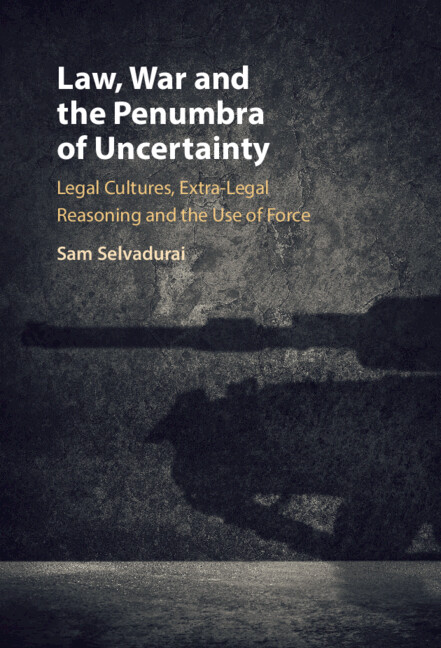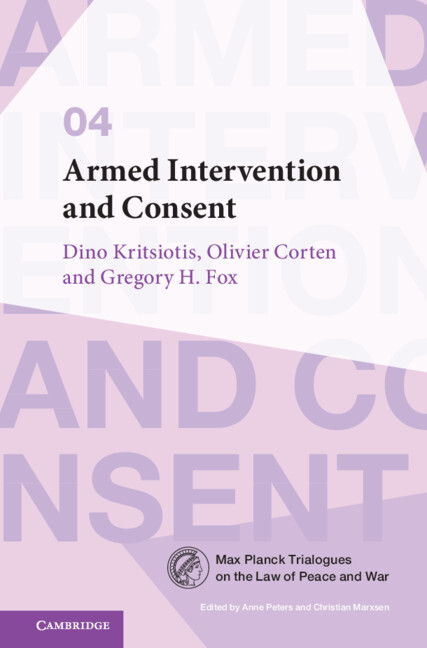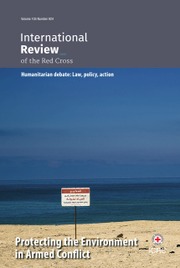Law, War and the Penumbra of Uncertainty
This book argues that lawyers must often rely on contestable ethical and strategic intuitions when dealing with legal and factual uncertainties in 'hard cases' of resort to force. This area of international law relies on multiple tests which can be interpreted in different ways, do not yield binary 'yes/no' answers, and together define 'paradigms' of lawful and unlawful force. Controversial cases of force differ from these paradigms, requiring lawyers to assess complex, incomplete factual evidence, and to forecast the immediate and long-term consequences of using and not using force. Legal rules cannot resolve such uncertainties; instead, techniques from legal risk management, strategic intelligence assessment and political forecasting may help. This study develops these arguments using the philosophy of knowledge, socio-legal, politico-strategic and ethical theory, structured interviews and a survey with 31 UK-based international lawyers, and systematic analysis of key International Court of Justice cases and scholarly assessments of US-led interventions.�
- Uses philosophical, legal, political and ethical concepts to provide clear, plain language descriptions of legal and factual uncertainty in controversial 'hard cases' of use of force
- Reports original interviews and surveys with international lawyers and provides systematic analysis of court judgments and scholarly works to draw links between legal and extra-legal understandings of use of force
- Develops proposed methods for addressing legal and factual uncertainty using techniques from legal risk management, international humanitarian law and strategic intelligence analysis
Reviews & endorsements
'In this innovative, inter-disciplinary and imaginative study, Sam Selvadurai asks how much the prior strategic and ethical views of international lawyers, as well as their general approach to law, influence their views on the use of force. He offers suggestions drawn from risk management and strategic assessment to help them to navigate their way through hard cases.' Sir Lawrence Freedman, Emeritus Professor of War Studies, King's College London
'Selvadurai's seminal book on the law of force navigates skilfully and elegantly between empirical, theoretical and doctrinal arguments to produce an informed and original analysis of decision-making cultures on the use of force. Drawing on interviews and surveys, this book makes important claims about what ought to be required in decisions about resort to force, claims that will no doubt advance discourse in international law, foreign policy and legal philosophy alike.' Professor Guglielmo Verdirame, King's College London
'The book takes a unique approach subjecting doctrinal legal questions to a forensic examination of how they are interpreted and applied in practice. It provides a bridge between law and policy, uncovering the reality of how States formulate their legal position on use of force. As such, it will be of much interest to scholars of law as well as those seeking to understanding policy and decision-making in this area.' Professor Noam Lubell, University of Essex
Product details
April 2022Hardback
9781316511985
256 pages
235 × 157 × 26 mm
0.682kg
Available
Table of Contents
- 1. Introduction: investigating law, war and the penumbra of uncertainty
- Part I. Varieties of uncertainty in the jus ad bellum:
- 2. Uncertainty about law in the jus ad bellum
- 3. Uncertainty about facts in the jus ad bellum
- Part II. The international court of justice, UK-based lawyers and the jus ad bellum:
- 4. Competing interpretive cultures of war
- 5. Competing strategic cultures of law
- Part III. Managing uncertainty: reconciling legal and extra-legal reasoning:
- 6. Legal risk, strategic assessment, forecasting and the jus ad bellum
- 7. Uncertainty, risk management and duty to the law
- 8. Conclusion: competing normative cultures of war
- Bibliography
- Index.









